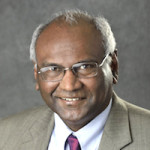Applying Toynbee’s “Challenge & Response”

 Arnold Toynbee (1889-1975) who was at the London School of Economics was not as well acknowledged as he was outside the UK after he suggested that the Chinese and their language were well positioned to be dominant soon. He I think is proving to be right in almost two generations after his demise. His magnum opus, however, I think was his theory of “Challenge and Response” – explaining why some civilisations did well while others fell back. This theory is that challenges together with our response to them are what makes or breaks a people. If there is no challenge, the civilization becomes one of lotus eaters. He applied this to tropical Africa which, well-endowed by nature, led to little progress.
Arnold Toynbee (1889-1975) who was at the London School of Economics was not as well acknowledged as he was outside the UK after he suggested that the Chinese and their language were well positioned to be dominant soon. He I think is proving to be right in almost two generations after his demise. His magnum opus, however, I think was his theory of “Challenge and Response” – explaining why some civilisations did well while others fell back. This theory is that challenges together with our response to them are what makes or breaks a people. If there is no challenge, the civilization becomes one of lotus eaters. He applied this to tropical Africa which, well-endowed by nature, led to little progress.
If a challenge is too strong, the response it evokes may break the civilization. When the ice age set in, the igloo exploiting the fact that ice is a good insulator, was a major advance in technology. A little candle in the ice-insulated igloo, can raise the temperature significantly to protect the people from the cold. However, this response, the igloo, took the Eskimo civilization nowhere.
On the other hand, when there is a challenge to a society that is not so severe as to crush it, that society develops a response under elite minorities who lead it to growth and advancement. Thus when Sumer faced the threats from the swamps of Southern Iraq, their response led to irrigation systems and growth in the Sumerian way of life. Similarly, the challenges of winter led to the use of fire which in itself was an advance that in turn led to other advances in cooking, and food preservation. While all this is not against any race, it should be no surprise that Toynbee was accused by some of being a racist. I simply think he was correct and brilliant.
Application to the Tamils of Sri Lanka
Toynbee can be applied with some profit to the challenges faced by Tamil society in Sri Lanka. When the challenge of the civil war overtook us, there were three broad responses. Some of us fled abroad. Did that response lead to growth? I think the Diaspora has done economically well. Jaffna really had no sustainable society. We produced many educated people who had to leave Jaffna to get jobs. They came back for wives but essentially left us. They left for Colombo but that too was not sustainable when a small group qualified for the best jobs through missionary education. The tensions were mounting – through standardization for example – when the 1983 riots opened many doors to us in the West. Those who never would have gained entry to universities here see their children becoming professionals speaking good English. That and their family discipline make them professionally successful in the West. Culturally? Whether they will remain Tamil is a question. From Tamil society’s point of view, it is a terrible calamity when they marry outside and cease to be Tamil. From their point of view, assimilation is the road to success. In the long term, the cultural values that make the parents successful are likely to disappear in time. Whether they continue to be Tamil or not should not be a measure for their success as individuals. The social ills that beset our now-western brethren may lead their response to turn them into failures. However, it is too early to tell.
The Challenge of those who Resettled in the South
These who moved South have certainly been liberated from Jaffna’s strict way of life. They quickly become bilingual, even trilingual, and are a lot more successful than if they had stayed on in Jaffna. They see more success as those who went to the West come back to pick the best of them as spouses. Whether that s good or bad is, as noted, too soon to tell. Some are becoming Sinhalese. As a Tamil I do feel uncomfortable and even resentful when I see potentially good matches for my children marrying Sinhalese. There is a tendency among Tamils to label them as traitors. However, are they? When they marry Sinhalese and become successful, who are we to say that is wrong? The Tamil community certainly is diminished in numbers and strength. But the individual who left the community probably will be more successful as a Sinhalese. There is nothing from his individual perspective to say it is wrong.
To be sure, most Sinhalese would say we are one people so what is wrong? It is easy to say that when such mixed couples almost invariably become Sinhalese whose existence in this country is not under threat – whether to life or to culture. In fact, we can see from our own life-time that the West coast North of Colombo has switched from Tamil to Sinhalese. Those who so switched are successful as Sinhalese, although that process has weakened the Tamil community. In fact I would go so far as to say, we were all once Tamils (or Dravidian speakers of some sort) and Buddhism created the Sinhalese people. Is there any right and wrong in that?

